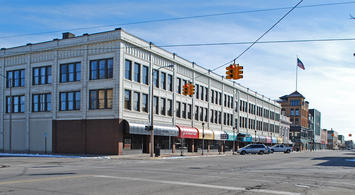
My latest column is online in Governing magazine. It’s called “The Cloud Over the Future of America’s Downtowns” and is about the particular challenge coronavirus related shutdowns pose to the American downtown renaissance.
Here’s an excerpt:
The pandemic has dealt American downtowns severe blows across multiple dimensions. The first is the impact on tourism and visitor-related spending. The convention and events business is a big pillar of economic activity in many downtowns, and some of them rely heavily on tourism as well. This supports not just the hotel industry but also restaurants, clubs and other attractions. This industry has all but been shut down, and there’s little prospect of an immediate bounceback. This puts a lot of the businesses that depend on visitors at risk of shutting down permanently.
…
Another challenge will be from increased working from home. Whether or not there will be a major permanent uptick in remote work remains to be seen, but it’s hard to imagine the share of people working remotely doing anything other than going up. This will reduce downtown office demand and employee headcount.What is very clear is that many large corporate employers have decided not to have workers return to the office in the near future, in some cases not until 2021. These workers are a key constituency that patronizes restaurants, retail and cultural institutions downtown. Some establishments that might survive the loss of tourism business won’t be able to overcome the loss of office-worker customers as well. And when these major companies finally do summon their employees back to the office, they may discover that it’s to an environment denuded of many of the amenities that made downtown an attractive corporate location.
Click through to read the whole thing.
Aaron M. Renn is an opinion-leading urban analyst, consultant, speaker, and writer on a mission to help America’s cities and people thrive and find real success in the 21st century. He also regularly contributes to and is cited by national and global media outlets, and his work has appeared in the The Guardian (UK), The New York Times, and The Washington Post, along with many others. Renn was a Senior Fellow at the Manhattan Institute from 2015-2019 and is a Contributing Editor at its quarterly magazine City Journal.
Photo credit: Andrew Jameson via Wikimedia under CC 3.0 License.












